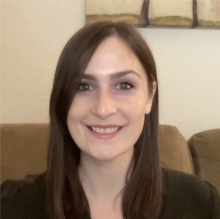Abstract
We describe LIquid(1 2), the graph database built to host LinkedIn. At LinkedIn, LIquid serves a ~15Tb graph at ~2M QPS. We describe the graph data model precisely in terms of the relational model and explain how to query it with Datalog. We describe how to do this in memory at scale.
Speaker

Scott Meyer
Distinguished Software Engineer @LinkedIn, Creator of the Graph Database, LIquid, Metaweb/freebase Alum
40 years of adventures in software: computer graphics, networking, GUI application development, object-oriented databases, a Java language implementation and now I seem to have settled on graph databases. I led the storage team at Metaweb. We built freebase.com, the world-writable graph of all common knowledge which became Google's knowledge graph (and also Microsoft's). In 2014 I moved to LinkedIn to start a next-generation relational graph database project called LIquid:
https://engineering.linkedin.com/blog/2020/liquid-the-soul-of-a-new-graph-database-part-1
https://engineering.linkedin.com/blog/2020/liquid--the-soul-of-a-new-graph-database--part-2
LIquid has been in production at LinkedIn for several years








